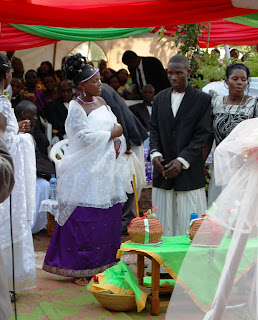
We left Uganda one month ago today. We've been home in Corvallis for about two weeks. It's been great to see Tracy, Carl, and Alfonc (our exchange student), and to meet Nasir, Carl's roommate. We've been catching up with friends around town and at church. We've gotten to see both our moms and some of our family. We've worked in our yard when the sun has come out, and shopped and cleaned. Paul started back at CH2M yesterday. In other words, we've begun to get back to our Corvallis life. It's been nice, and we haven't really experienced the reverse culture shock people sometimes do.
Scott, meanwhile, is still at school in Kenya. He had his mid-term break this last weekend. He and some friends decided they would go camping in the bush. Paul and I were a little concerned, but we figured this is the kind of thing you do when you are 17 and living in Africa. Here's the report we got from Scott when he returned (he told me it was ok to post). A few vocabulary explanations first:
Mrs. King is his dorm mother
the tracks he refers to are the railroad tracks leading away from the school
"longanaut" is Mt. Longanaut, the hill they were planning to climb
"boda" is a motorcycle
"click" is short for kilometer
"yeah of course we are safe. mrs. king told me you were worried but there was nothing to be worried about. we walked up to the tracks and down them towards longanaut. we had to walk in the rain under a big tarp which was tiring. we got there and paid for a nights camping which was cheap. interesting anecdote: a dude booked up on a boda, ran into the longanaut building and came back decked out in camo with a machine gun cocking it and checking his load. he took off and we asked the ranger where he was off to. the ranger told us he was going down the road to fight bandits. hardcore. anyways, we camped a night, walked up to the top and went down. we were talking about going further out but then a train came. we tried to hop it and failed. we met it at the station a click away and talked to conductor, he offered to give us a ride to kijabe and we accepted. it was awesome."
Corvallis may seem a little tame when he gets home in mid-July.







































